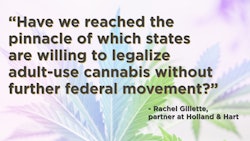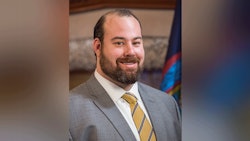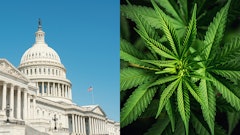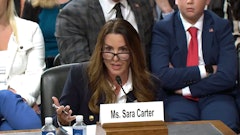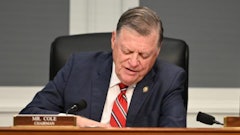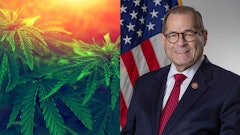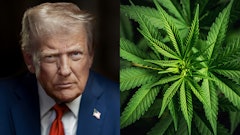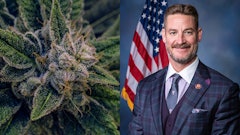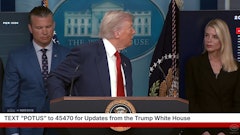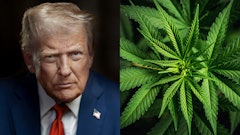
This story was updated at 10:26 a.m. Sept. 6, 2023.
Last week, the Department of Health and Human Services (HHS) confirmed that after conducting a scientific and medical evaluation of cannabis, it sent the Drug Enforcement Administration (DEA) a scheduling recommendation, less than 11 months after President Joe Biden called for the agencies to review the plant’s designation as one with a “high potential for abuse” and no accepted medical use.
Although neither the HHS nor the DEA would confirm the details of the recommendation, according to Bloomberg, HHS has proposed a move to Schedule III, which would place it among drugs like Tylenol with codeine, ketamine and testosterone, substances considered to be less dangerous than those listed on Schedule I and II. They are deemed to have accepted medical uses in the U.S. and are generally prescribed and sold through licensed pharmacies and not available over the counter.
The fate of cannabis’s schedule status is in the hands of the DEA, which has the “final authority to schedule or reschedule a drug under the Controlled Substances Act,” a DEA spokesperson wrote in an email statement to Cannabis Business Times.
If cannabis were within Schedule III, it could be subject to more federal oversight and be sold through licensed pharmacies. Although much remains unknown, including how long the DEA will take to review the HHS recommendation and make its call, many in the cannabis industry saw the announcement, and the potential move to Schedule III, as a step toward meaningful federal cannabis policy reform.
READ MORE: US Health and Human Services Department Recommends Cannabis Reclassified to Schedule III
"Given that this was called for by the president himself, it seems highly probable that cannabis will be moved to Schedule III sometime in the next year, likely before the 2024 presidential election,” says Kris Krane, director of cannabis development for KCSA Strategic Communications. “Once that happens, by far the biggest immediate impact will be that 280E will no longer apply to cannabis businesses. This tax code only applies to Schedule I and II substances. This will eliminate one of the largest hindrances to profitability facing cannabis businesses today. This impact cannot be understated.”
Larry Scheffler, co-CEO of Las Vegas-based Planet 13, said removing the burden of Section 280E of the Internal Revenue Code, which prohibits plant-touching cannabis businesses from deducting many everyday business expenses, would be “a lifechanging event for the cannabis industry.”
“It’s such a drastic penalty of 20% to 21% tax with 280E in place, which for many non-cannabis companies, it’s really what a company lives on; they are making a profit margin of 20% to 25%,” Scheffler says. “It will literally be life saving for many cannabis companies that are on life support … From their lips to God’s ears, we’ve been waiting for this a long time.”

Krane added that eliminating 280E could lead to fresh sources of capital from new lenders and push Congress to act.
“One of the biggest challenges for lenders today is that 280E saps most of the free cash flow out of cannabis businesses that is needed to service debt. This will provide massive cash flow relief and allow companies to take in debt for new projects and expansion that is not currently available,” he says. “This recommendation may also prompt Congress to take further action on the issue. Armed with the federal government’s top health agency’s recommendation, Congress now has more political cover to pass bills like SAFE banking and possibly further comprehensive reform.”
Because tax code 280E does not apply to substances classified under Schedule III, Rachel Gillette, partner and leader of Holland & Hart’s cannabis and psychedelics group, said it isn't clear yet how 280E would be handled if the DEA takes the HHS recommendation to reschedule.
"I suppose it’s an open question as to whether or how 280E will apply if a reclassification to Schedule III happens mid-way through the tax year, or whether there will be some 'retroactivity' in its application if its reclassified, which I think is probably unlikely," Gillette says. "As far as banking and better financial services, I think that too remains to be seen. The problem with reclassifying to Schedule III as compared to de-scheduling (removing from the list of controlled substances altogether and regulating like alcohol or tobacco) is that there remains a conflict between state law and federal law, as all federal criminal prohibitions on cannabis will not go away with a Schedule III classification. I am not sure whether or how banks get comfortable with cannabis, when federal law remains in conflict with many state’s laws."
In an email statement titled “Rescheduling is Not Enough,” NORML Deputy Director Paul Armentano says because the DEA will make the final recommendation, “it is safe to say this process still remains far from over” and emphasized his support for descheduling.
“It will be very interesting to see how DEA responds to this recommendation, given the agency’s historic opposition to any potential change in cannabis’ categorization under federal law,” Armentano wrote. “Further, for decades, the agency has utilized its own five-factor criteria for assessing cannabis’ placement in the CSA — criteria that as recently as 2016, the agency claimed that cannabis failed to meet.”
In 2016, according to a summary from the DEA outlining the reasons the most recent petition to reschedule cannabis was denied, the DEA noted it is obligated under the Single Convention on Narcotic Drugs, a 1961 international treaty, to keep cannabis within either Schedule I or II of the CSA:
“Marijuana is a drug listed in the Single Convention … It has been established in prior marijuana rescheduling proceedings that placement of marijuana in either schedule I or schedule II of the CSA is 'necessary as well as sufficient to satisfy our international obligations' under the Single Convention. As the United States Court of Appeals for the DC Circuit has stated, ‘several requirements imposed by the Single Convention would not be met if cannabis and cannabis resin were placed in CSA schedule III, IV, or V.’”
Armentano also noted that rescheduling cannabis does not resolve the conflict between federal and state policy.
“Rescheduling the cannabis plant to Schedule III of the U.S. Controlled Substances Act fails to adequately address this conflict, as existing state legalization laws — both adult use and medical — will continue to be in conflict with federal regulations, thereby perpetuating the existing divide between state and federal marijuana policies,” he said in the email statement. “Just as it is intellectually dishonest to categorize cannabis in the same placement as heroin, it is equally disingenuous to treat cannabis in the same manner as anabolic steroids.”
Cat Packer, Director of Drug Markets and Legal Regulation at the Drug Policy Alliance, also noted that a move to Schedule III would not realize the promise from President Biden to decriminalize cannabis and expunge prior cannabis use convictions.
"While this announcement has significant symbolic value, a move to Schedule III would do little to address the most serious harms impacting communities that have been disproportionately targeted by marijuana criminalization,” Packer wrote in the statement. “To be clear, the continued placement and control of marijuana under the CSA would mean that most marijuana conduct would remain illegal under federal law.”

When asked if the move would be good or bad for the already established, state-legal markets, Gillette said, “Potentially both.”
“At least we have started talking about it no longer being Schedule I. Although rescheduling to Schedule III could impair, interfere [with] or impact states’ regulation of cannabis, no longer falling under Schedule I means fair taxation (no more 280E) and potentially more normal banking and payment processing access,” Gillette says. “The unanswered question is whether big pharma replaces the current industry participants if it’s rescheduled to Schedule III.
“It largely depends on how the federal government regulates cannabis as a Schedule III controlled substance," Gillette adds. "I mean Ketamine and Anabolic Steroids are Schedule III, but last time I checked, I could not walk down to my corner store and buy them.”
Boris Jordan, executive chairman of Curaleaf, said in a statement that although he was “optimistic about the long overdue news,” Americans have long supported cannabis reform and that it’s “time for our political leaders to catch up.”
“… It's past time for our political leaders to listen to the voters on this issue, especially given that 92% of Americans are now in support of legalization in some form," Jordan wrote. “We hope that this recategorization occurs promptly. … We will not stop fighting for legislative reform - which is critical for the protection of employees, patients, customers and businesses around the country.”
Adam Goers, co-chair of the Coalition for Cannabis Scheduling Reform, said in a statement that a move to Schedule III would provide significant support to the regulated cannabis industry, which has “nearly unfettered competition from unlicensed operators.”
“Moving down to Schedule III will provide a massive boost to our industry, particularly social equity and small business owners who have suffered the most under the status quo,” Goers said.












